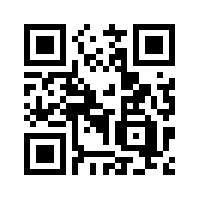The Search Process
Real Estate Agents continue to be a critical component in the home buyers search process. Home buyers are relying heavily on online sources and their agents to provide information, with decreasing use of some sources, such as newspapers and open houses.
The Internet has become an essential and indispensable tool in the home search process with nearly 90 percent of home buyers using it to search for homes, and 56 percent of buyers stating that the use of the Internet was the first step taken during the home buying process.
Typically, home buyers typically spends in an average of 12 weeks searching for a home and preview an average of 12 properties before deciding on their purchase.
Information sources used by home buyers in search for property :
What Interests Home Buyers
Top of the list for home buyer when they search for properties is the photos or images of the respective ad or article. The detailed information such as the property type and description which includes the size, amenities and well as the accessibility to the listed property are some key points that would influence the potential buyers.
With the technological advancement, potential buyers also lured with Virtual Tours of the property and Interactive Maps that would navigate the prospects to the exact location.
Home Buyer and Real Estate Agents
The home buyers still rely on real estate agents to be partners as they navigate the home purchase process. The confidence and trust that buyers place in their agent translates into repeat business. Agents who satisfy buyers by providing the services that matter are likely to earn repeat business.
Important Factors That Home Buyer Chose Their Real Estate Agents
When it comes to choosing a right real estate agents, home buyers prefers agents who are honest and trustworthy. The reputation of these agents are also crucial besides the knowledge of the property and it’s surroundings (neighbourhood). Quite a number of agents is a friend or family member(relative) of the home buyers and via referrals. Home buyers also looks for agents who are good listeners and responses in a timely manners. Agents that are easily accessible and tech savvy would also hold the slight advantage against its peers or competitions. Professional designation and the agent’s association is the least factor of home buyers choosing their real estate agents.
Response Time from Real Estate Agents
The expected response time for agents from the majority of home sellers (77%) would be within 30 minutes. However, only 24% of agents reply to the seller within 30 minutes.
On the buyers perspective, they (88%) expect a response from their agent within one hour and only 30% of agents who are able to meet these expectations. 100% buyers said their agent’s response time was important.
Technology and Real Estate Agents
In the 90s, the telephone was the primary source of contact between a client and real estate professional. Today, the Internet has replaced the telephone as the first point of contact.
Technology gives an advantage over other real estate agents. It allows agents to stay competitive and able to response and communicate to the clients faster. Technology also helps the agents to stay relevant besides saving precious time and money.
On the other note, referrals from friends and family continue to be among the most important factors when home sellers choose a real estate agent. In general, marketing in print media, such as real estate magazines and newspaper advertisements dropped significantly over the years.
Key Take-Aways
The real estate industry will always be a serviced industry. As clients looks for a open, honest and trustworthy agents to propose and provide solutions, real estate agents also need to stay competitive and responsive in a timely manner. With the internet technology, we are now smarter consumers and are consuming media and information via mobile devices at anytime, anywhere. Real estate agents that leverages on technology would have a clear advantage against its peers and competitors.
Besides changing the business landscape today, technology and the internet are also part of the key drivers that is able to accelerate the real estate businesses going forward.





















